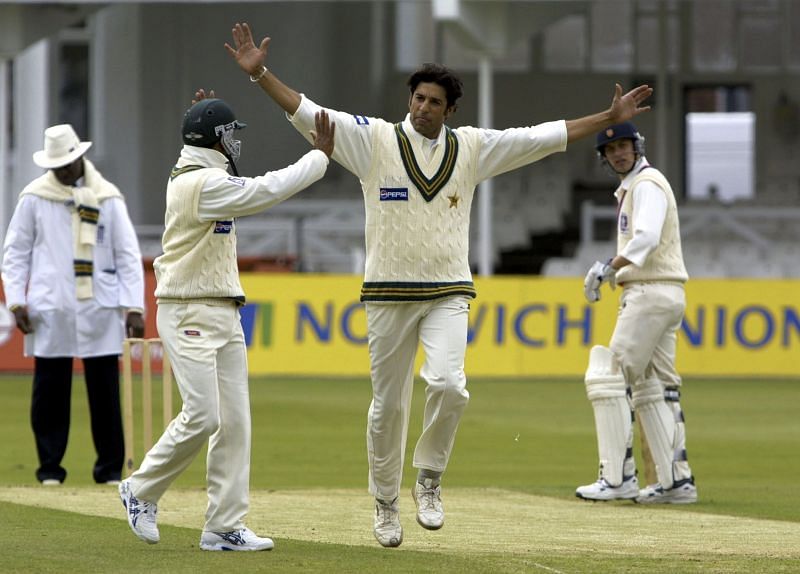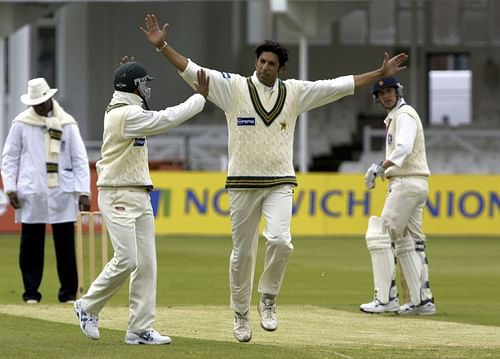
Kiran More reveals how Indian cricket team & Pakistan scratched the ball to get reverse swing

Former Indian cricket team wicket-keeper Kiran More has made an explosive revelation saying that ball-tampering was rampant in matches between the Indian cricket team and Pakistan, especially in the 1989 series.
Kiran More, who has also served as the chairman of the selection committee for the Indian cricket team, informed that cricketers from both sides of the border used to scratch the ball to get maximum amount of reverse swing as possible.
The 1989 series in Pakistan saw the Indian cricket team competing in a four-Test series with all the matches ending in draws. The series remains famous for the debuts of two legendary cricketers – Sachin Tendulkar and Waqar Younis.
“In those days, scratching the ball was allowed, so you used to get reverse swing, big time,” Kiran More said on The Greatest Rivalry podcast.
“It was like, nobody used to complain from both sides. Everybody used to scratch the ball and reverse swing the ball. It was difficult to bat, it was not easy to bat. Even Manoj Prabhakar learnt on that team how to scratch that ball and reverse swing that ball and Pakistan found it challenging,” the former India wicketkeeper said.
Kiran More claimed Indian cricket team and Pakistan bowlers tried various ways to get advantage
Kiran More felt pace bowlers from both sides used to tamper the ball to get reverse swing. Wasim Akram from Pakistan and Indian cricket team member Manoj Prabhakar ended up as the highest wicket-takers in the series with 18 and 16 wickets respectively.
Kiran More turned out in 49 Tests for the Indian cricket team, with nine of those coming against Pakistan. The former wicket-keeper batsman averaged 61 in the 1989 series and scored one half-century.
The fast bowlers though were blunted by the Indian cricket team batsman, with Sanjay Manjrekar scoring 569 runs in series at an average of 94.83 with two centuries, including a top-score of 218.
Pakistan’s Shoaib Mohammad was the second-highest scorer with 412 runs in four Tests at an average of 103 with a top-score of 203 not out.
A few years later, the ball-tampering saga involving Pakistan really blew up in England in 1992. Wasim Akram and Waqar Younis were accused of ball-tampering as the duo combined to pick up 43 wickets as Pakistan won the Test series in England 2-1.
It led to two expensive court tussles between former Pakistan pacer Sarfaraz Nawaz and former English batsman Allan Lamb as well as another one between former all-rounders Ian Botham and Imran Khan.
In fact, Pakistan forfeited a Test match in 2006 in England when they were again accused of ball-tampering by umpire Darrell Hair.
John Holder, one of the umpires from the 1989 series between the Indian cricket team and Pakistan, said in an interview that he tried to discuss the matter with the two captains – Imran Khan and Kris Srikkanth. However, they couldn’t impose any punishments.
“A wicket would fall – and in those days the umpires didn’t necessarily get hold of the ball after every over – and the players would just stand there scratching it. And it got to a point where despite what we had to say on the field, we had to get the two captains and the two managers together. We said this is illegal,” John Holder had said in an interview to Mid-Day.
“The problem was we were powerless, because there were no sanctions we could apply. Later there was a rewrite of the laws and they decided to bring penalty runs in for ball-tampering. And then they decided you could ban the bowler from bowling for the rest of the innings,” the former umpire added.